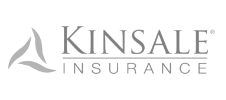Insurance for Surgical Technicians

Surgical technicians (also called surgical technologists) are the backbone of safe operations—prepping the room, maintaining sterile fields, counting instruments, and anticipating the surgeon’s needs. Because a single lapse can lead to infection, retained items, or procedure delays, surgical techs face real liability exposure even when they work under supervision.
Homewood Insurance helps surgical technicians secure personal malpractice and related coverages that align with your scope—whether you’re hospital-employed, agency-placed, or an independent contractor.
This page explains the following:.
- What Insurance Includes – clear protections for malpractice and everyday risks tied to operating room work.
- Cost of Coverage – realistic premium ranges and the factors that influence price.
- Higher-Risk Procedures – case types that elevate premiums or may need endorsements.
- Why Work With Homewood – how we help surgical techs avoid gaps and keep costs down.
What our customers say
Get a Free Quote Now
Share your case mix, settings (hospital, ASC, office-OR), certifications, and any prior claims. We’ll present options matched to your work so you can stay protected at a fair price.
Malpractice Insurance for Surgical Technicians can include:
- Option to include general liability alongside malpractice.
- Coverage limits available up to $2 million per individual claim.
- Consent to settle” options so you retain a say in settlements.
- License protection and legal defense for board matters.
- Defense for allegations of privacy violations and sexual misconduct.
- Defense costs paid in addition to liability limits.
- Portable coverage that follows you across hospitals, ASCs, per-diem, moonlighting, and volunteer settings.
Insurance for Surgical Technicians can include:
Malpractice or liability insurance can provide essential protection against these risks:
-
Professional Liability (Malpractice)
- Covers allegations tied to sterile field breaches, instrument counts, specimen handling, and room setup.
- Defense for claims arising from wrong item passed, incorrect equipment setup, or failure to follow policy.
- Protection for post-operative infection allegations linked to sterilization or processing errors.
- License protection for investigations, board complaints, and disciplinary hearings.
- Prior-acts and tail options to cover gaps when changing jobs or policies.
- Optional extensions (if part of your role) for limited tele-support/training or documentation tasks.
-
General Liability Insurance(targeted to surgical tech work)
- Premises incidents at your employer or agency training sites (visitor slips and falls, event demos).
- Property damage to others during in-service sessions, skills labs, or vendor-in-theater training.
- Personal and advertising injury (claims of defamation or misleading promotional material if you market independent services).
- Medical payments for minor on-site injuries, regardless of fault.
Why do Surgical Technicians need Insurance?
Operating rooms are high-stakes, team-based environments. Even with supervision, techs can be named in suits when:
- Sterilization or aseptic technique fails, leading to surgical site infections.
- Instrument or sponge counts are incorrect, contributing to retained foreign objects.
- Equipment is mis-set or unavailable, delaying care or causing complications.
- Communication breaks down about allergies, implants, or instruments needed.
- Confidential information is mishandled (privacy and records issues).
-
Hospital- or ASC-based techs with standard case mix: $300 – $1,200.
-
High-volume or higher-acuity mix (orthopedics/spine/trauma): $600 – $1,800+
-
Independent contractors/1099s (proof often required by agencies): base range +20–50% over employed rates
Notes on how pricing works
- Premiums vary by state, procedure mix (orthopedics, spine, bariatrics, plastics), case volume, experience/certification (CST), and claims history.
- Policies can be claims-made (often lower first-year premium; tail needed if you leave) or occurrence (higher up front; no tail needed).
- If you rely on an employer’s policy, a personal policy can protect you for per-diem, volunteer, agency, or side work that the employer policy may not cover.
General Liability Insurance – (if you operate as an independent contractor, educate, or consult)
-
• Typical add-on: $200 – $600 per year, depending on activity and limits.





















| Procedure Category | Why It’s Higher Risk | Controls Required | Insurance Impact |
|---|---|---|---|
| Orthopedics (total joints, arthroscopy) | Complex trays and implants; infection and DVT risks | Tray verification, implant logs, strict asepsis | Rates trend higher; +40–60% vs. low-acuity mix |
| Spine and neuro | Neurologic injury potential; lengthy cases | Microscope setup checks, count rigor, backup instruments | +30–70% depending on case share |
| Advanced laparoscopy / bariatrics | Multiple ports; energy devices; conversion risk | Energy safety, smoke evacuation, scope integrity checks | +25–50% with higher bariatric volume |
| Plastic & cosmetic | Outcome dissatisfaction; office-OR variability | Sterility in office settings, count documentation | +50–100%; some carriers apply sublimits |
| Trauma / emergency add-ons | Time pressure; incomplete information | Rapid tray readiness, team time-outs, backup plans | +30–60% where trauma is frequent |
Best-Practice Tips to Keep Premiums Down
- Maintain current CST certification and document competencies for specialty trays and devices.
- Use standardized count and handoff checklists; log any deviations with immediate reconciliation.
- Participate actively in pre-op briefs/time-outs and vendor coordination for implants and loaner sets.
- Keep a simple case log showing your mix—underwriters reward predictable, well-documented practice.
- If you do per-diem or agency work, confirm how entity and personal policies interact (shared vs. separate limits).
What types of Insurance do Surgical Technicians need?

General Liability Insurance

Business owner's policy (BOP) insurance

Professional Liability Insurance

Commercial Auto Insurance

Workers Compensation Insurance

Cyber Liability Insurance
Why Work With Homewood
- Policies tailored to how you actually work—employed, agency-placed, or independent.
- Access to nearly 100 insurance carriers, including markets familiar with operating room exposures.
- Guidance on claims-made vs. occurrence, prior-acts and tail, and setting the right limits for high-acuity mixes.
- Help closing gaps between employer coverage and your personal policy so you’re protected everywhere you practice.
- Clear, plain-English explanations so you know exactly what is—and isn’t—covered.
Call 947-274-3093 or
Fill Out the Form
Ralph Schiller
Ralph specializes in sourcing the most suitable insurance for Surgical Technicians at the best price. You can call him or fill out the form and he will get your message directly.







